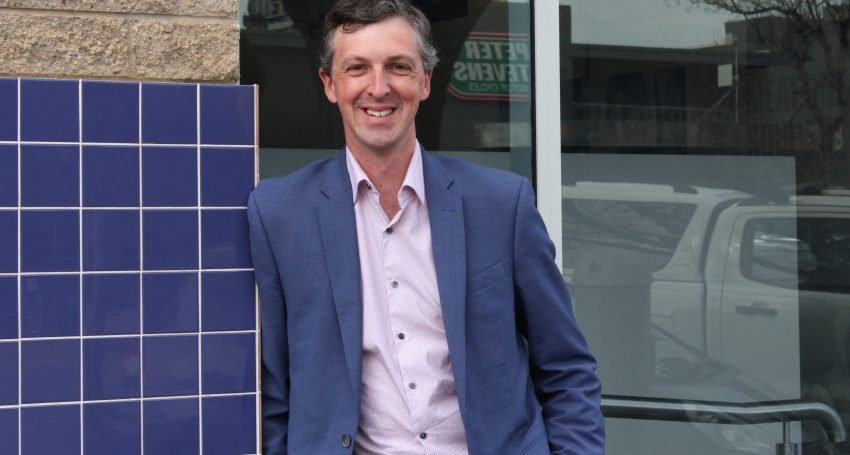It's time...Vinnies looks to the future
People
Just under 200 regional and State leaders of the St Vincent de Paul Society attended a national congress in Adelaide last weekend – the first gathering of its kind in 60 years. JENNY BRINKWORTH spoke with the Society’s national president Graham West about the aims of the congress and some of the challenges facing one of Australia’s largest volunteer-based organisations.

For Graham West, a former New South Wales politician with a background in community development, the time for Vinnies to come together to take stock of current realities and set the agenda for the future of the organisation has never been better.
After all, when the St Vincent de Paul Society (Vinnies) held its last national congress in 1957, Australia had a population of under 10 million and Vatican II had not even been contemplated.
Advertisement
“It’s a completely different world, there have been enormous changes in society…the fact we haven’t done this for 60 years is an opportunity to put us back on track,” Mr West told The Southern Cross on the eve of the congress.
“We have been discussing the need to come together as a Society for the past five years, including what form that might take.
“We used to have thousands of people coming from all over the place – massive processions with many people travelling by train for days from the Outback.
“We can’t necessarily do that now but it’s important to bring people together so we can discuss our shared future.
“The Society is facing many challenges; Mass participation is going down and that’s where we’ve traditionally drawn our members, so we need to think of new ways of engaging with all people.”
At 44 years of age, Mr West admits he has often been described as “young” since being elected national president two and a half years ago. But while he recognises the importance of attracting younger people to the organisation, he said he wanted “everybody” to feel they could be part of a 184-year-old social movement that has survived the test of time.
He also recognises that there are new forms of poverty and the Society has to make sure “we are not just giving a hand out, but a hand up”.
Mr West points to Adelaide as a place where “some really innovative initiatives” are helping to engage new members and meet their needs as well as the needs of the “companions” the organisation serves. That was one of the reasons for holding the congress here, as well as the fact that the first national congress in the 1920s was held in Adelaide.
“Some new models are being trialled in Adelaide like the flying squad (community response team) at Elizabeth…South Australia has also commissioned research into its members and volunteers which we are using for a national research project,” he said.
“SA is leading the way in many ways.”
Mr West stressed the congress was not a conference with lots of people talking; rather it comprised keynote speakers provoking and raising issues that could be unpacked in small groups. “What are we doing well, what could be done better, what needs to change,” he said.
Advertisement
“Hopefully addressing those questions will give us a richer society accessible to more people and assisting more people.”
“We want to make sure the society is going for another 184 years.”
Mr West was 17 and “a young bloke at a Catholic Marist school who wanted to change the world” when someone came along and talked to his class about Vinnies. He and a mate went along to the local conference when they realised that young people could join.
“We rocked up to the local conference at Eagle Vale,” he recalled.
“They gave us a voucher book and a list of names and said don’t give out more than $50 worth.
“I still remember those first visitations in Eagle Vale where there was a big housing development and so much isolation.”
Mr West said young people could be involved in all sorts of activities with Vinnies now, and while there was a more professional approach to training and induction, nothing was stopping young people today doing the same as he had done.
The challenge was to recognise that Generation Y was more likely to follow causes, than institutions.
“Vinnies has always been a social movement – we need to re-emphasise that and welcome people who want to join in the journey,” he said.
“Social media is important but it is never going to replace face-to-face communication.
“We want to see that social media engagement translated into people making genuine connections with people in need.
“We need to do it better (social media), but it’s not the end game.”
With many volunteers “dipping in and out” of the organisation throughout their lives, Mr West said the Society also needed to find new ways of “forming people” and sharing the story of its founder Frederic Ozanam.
For the people who Vinnies assist, Mr West considers Vinnies to be one of the few institutions that they feel they can turn to at any time.
“That’s because we are non-judgemental, we operate professionally but we are ordinary people coming together to help one another,” he said.
“It’s a two-way process, we gain as much as they do. We share their hopes and dreams and frustrations…that allows us to get to the root of the problem and assist in a far greater way, over the long term.
“It might be a food voucher one week, employment another and reconnection with the community the next.
“We walk along with them on their journey.”












Comments
Show comments Hide comments